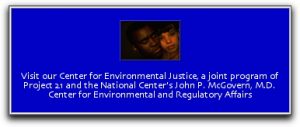01 Oct 2004 Minimum Wage Increase – Help or Hype? by Kimani Jefferson
Massachusetts senator John Kerry, like other liberal politicians, is once again calling for an increase in the minimum wage. The Kerry plan calls for a 36 percent increase to seven dollars an hour. He says it will help those living in poverty.
Like all liberal ideas, it sounds good at first. But what will the net effect be, specifically on blacks? The old adage remains true: The devil is in the details.
According to a Employment Policies Institute (EPI) study, increasing the minimum wage won’t alleviate poverty among the working poor. The majority of workers living in poor families already earn more than Kerry’s proposed increase. Likewise, those earning minimum wage are more likely to live in families with incomes three times the poverty line (teens working their first jobs).
An increased minimum wage would undoubtedly help some people. Eileen Appelbaum, a Rutgers University labor economist, says raising the minimum wage by $1.85 would translate into more than $3,800 a year in additional income for a full-time minimum-wage employee. But raising the minimum wage would also affect the size and earning potential of the workforce.
One thing must be remembered about business: Profit is something employers don’t forget about. History has proven employers won’t stand idle, and increasing employee costs means staffing cutbacks and reduced hours.
Bruce Bartlett of the National Center for Policy Analysis points out that there are more negative consequences of a wage hike. Based on demographic studies of past increases:
* A ten percent raise in the minimum wage will reduce overall youth employment by 2.1 percent.
* For low-income workers earning minimum wage or slightly better, a ten percent minimum wage hike will result in a ten percent job loss.
* Eighty percent of the net benefits will go to families who are not poor.
* Teenagers will be encouraged to drop out of school, reducing their overall capacity to rise above low-skill level jobs.
According to EPI’s research, the effect on the black community would be particularly acute. For younger blacks, “A ten percent increase in the minimum wage causes an 8.5 percent decline in the employment of African-Americans (aged 16-24).”
It’s a misperception that the working poor are poor because of a low minimum wage. In fact, the EPI study notes, “70.7 percent of workers living in poor families [already] earn wage rates greater than $7.00 per hour.” Real reasons for such poverty include the fact that many of the affected work less than full-time and family sizes are too large for such low hourly wages.
In the end, over 60 percent of the benefits of a minimum wage increase would go to families with incomes twice the poverty line or more. So, what’s the answer?
The Earned Income Tax Credit (EITC) is a far better policy tool for aiding low wage workers in poor families. According to EPI: “For every dollar in wages earned by a low-income family with two children, the federal government provides a tax credit of 40 cents. Workers with one child have an effective minimum wage of $6.90 per hour (the $5.15 per hour minimum wage plus an additional 34 percent credit of $1.75) and workers with two or more children have an effective minimum wage of $7.21 per hour (the $5.15 minimum wage plus an additional 40 percent credit of $2.06).”
Employers don’t directly pay for the EITC, so it causes no reduction in demand for low-skill workers. Also, the EITC would also help those in low-income families who are already making more than the minimum wage.
It’s the difference between sounding good and being effective. Liberals should have learned from the well-intentioned but failed programs of the ’60s that intention doesn’t guarantee outcome.
It would be great to just look at numbers as they are, form ideas and merely extrapolate conclusions. Liberal conclusions regarding who would benefit from a wage hike does precisely this. It’s a clumsy and dangerous proposition, however, for the working poor.
Protecting workers from poverty is a great idea. Expanding the EITC is the best way to aid them without hurting small business (which hurts the working poor). Some are convinced that the wage hike will work.
Well, to use Mark Twain’s words, “The trouble with the world is not that people know too little, but that they know so many things that ain’t so.”
###
Published by The National Center for Public Policy Research. Reprints permitted provided source is credited. New Visions Commentaries reflect the views of their author, and not necessarily those of Project 21.




